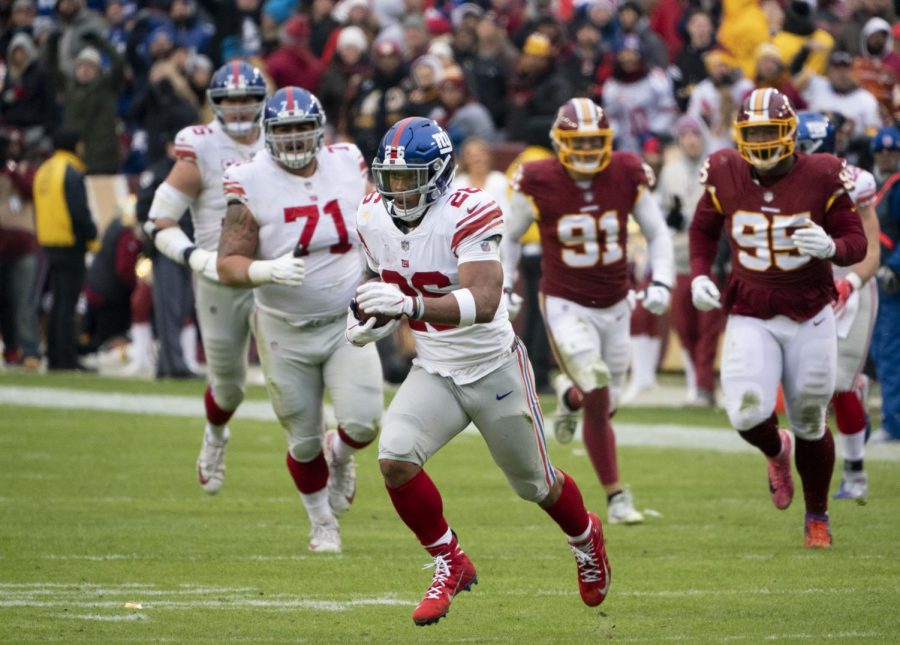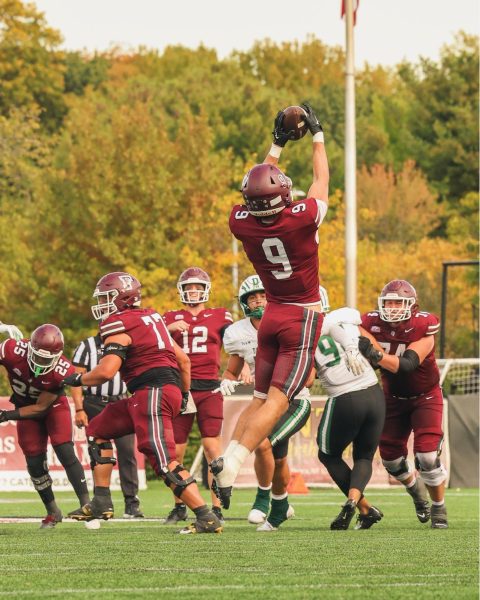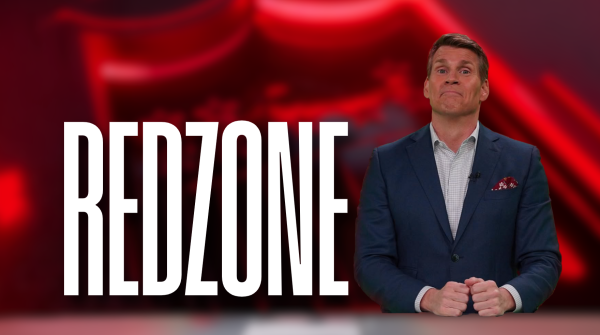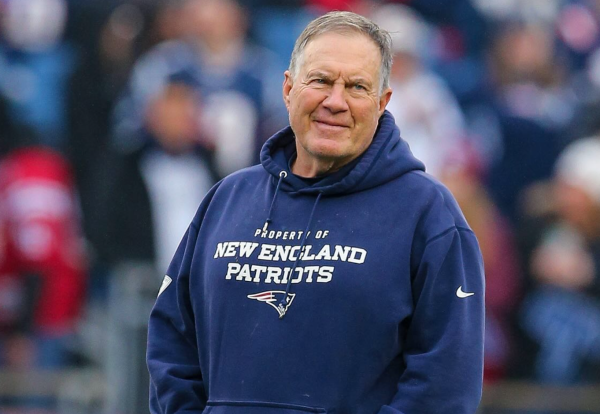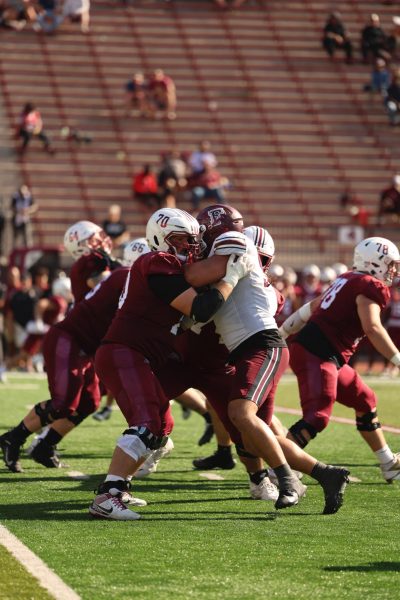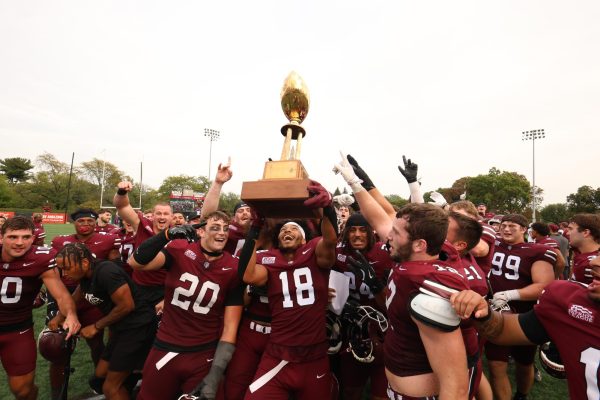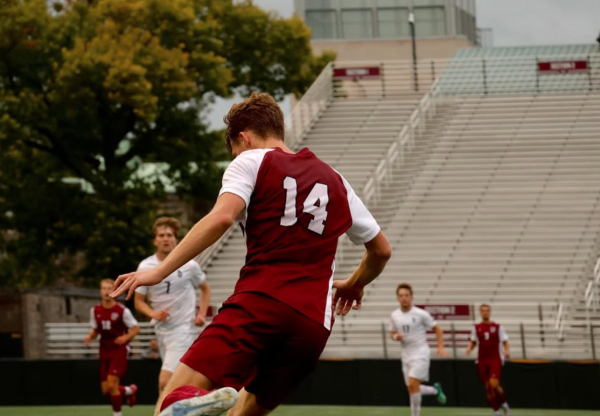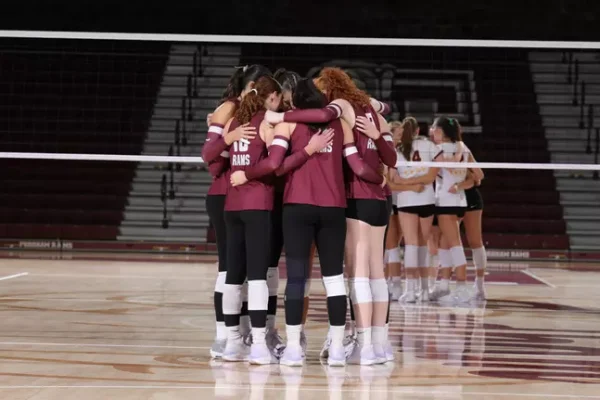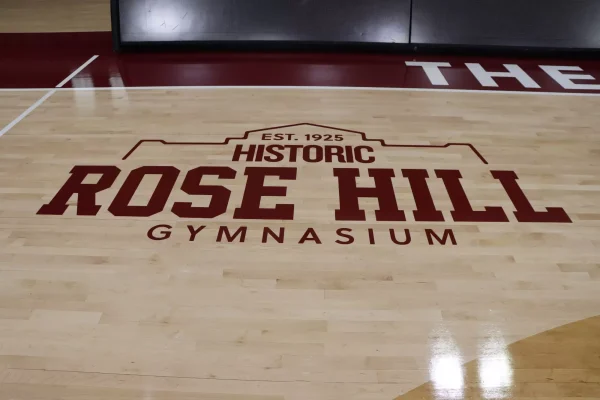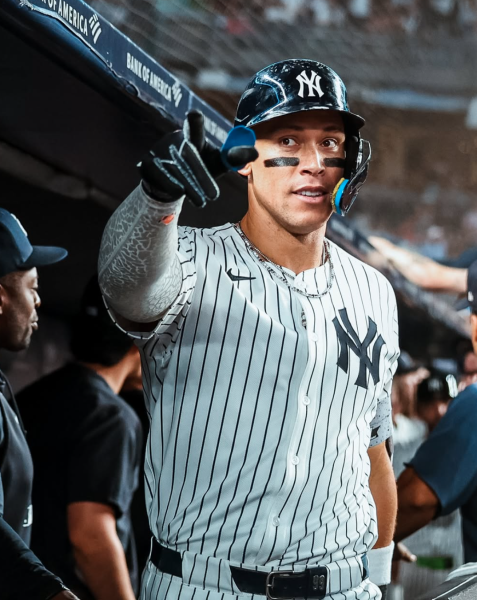The Giants’ Offensive Ineptitude Created a Monster for Saquon Barkley
When Saquon Barkley first emerged into the NFL scene in 2018, he quickly asserted his dominance and showed everyone why he was a star talent. Giants fans in the tri-state area and around the country were as celebratory as they were when their team last took home a Lombardi trophy.
Using his shifty footwork and Herculean lower body framework, Barkley could redirect a play or even an opposing defense away from where he wanted to go before bursting into the open field and outrunning them to the endzone. At times when the holes to run through were either small or almost nonexistent, he was able to, with the help of some blocking, push his way through and benefit from his insane strength to extend a play.
Barkley even created some of his greatest highlight reel plays with his incredible, athletic leaping abilities. Most people remember his iconic hurdle over Adrian Amos of the Chicago Bears and the endzone dive over the Dallas Cowboys line in 2018 and 2019, respectively. No matter what team the Giants faced, Saquon Barkley was viewed as a threat to opposing teams.
However, since his rookie season something appears to have drastically changed with the former Penn State player. For arguably most of the 2019 season when he was active, and in the first two weeks of the 2020 season, Barkley’s numbers have been dormant in contrast to his 2,000-plus yard rookie campaign. Despite becoming stronger with each offseason, it has become déjà vu seeing him stuffed at the line of scrimmage or behind by a swarm of defenders. Many fans are left to wonder what has happened to the jewel of Dave Gettleman’s draft selections.
Saquon Barkley’s performative decline can almost entirely be attributed to the Giants’ massive ineptitude on offense.
Over the last three seasons, the Giants have touted one of the three worst overall records in the NFL, at 12-37. Their offensive line has been the bane of their existence, failing to offer any player in the backfield substantive protection, time or gaps to make a play downfield. Outside of Barkley, their core of skilled players has lacked any consistency or effective skill set to take pressure and attention off the running back and make plays for the offense.
This has led them to rely on Barkley for a ton of offensive production and to be the spotlight of their 11-man unit. Especially when Eli Manning was still the not-so-mobile quarterback, former head coach Pat Shurmur had to feature the running game on many plays, including on long distance downs. It may have worked when he was a rookie and no defense had seen his ability yet, but now, over-featuring Barkley has made his game predictable, and defenses have learned how to shut him down.
Without solving their weaknesses and despite knowing that opposing defenses had Saquon’s number, the Giants continued to push his reps and put pressure on him to be the guy within Jason Garrett’s offensive scheme. Unable to provide a block or establish gaps to run through, Barkley was hit with brick wall after brick wall against the Pittsburgh “Steel Curtain” and the dominant defensive front of Chicago. As his numbers faded into the negatives, the Giants thought eventually the breakout Saquon Barkley would return and spark the offensive flame.
Instead, it has done nothing but create a monster for Saquon Barkley and their team. On Sunday, in what would ultimately be a 17-13 loss to the Chicago Bears, the running back suffered a torn ACL, along with a sprained MCL, according to NFL Network’s Ian Rapoport. The injury came early in the game when Barkley bounced off a low tackle and danced to the ground with Bears corner Eddie Jackson.
Clutching at his right knee while slamming his fist, out of acknowledgement of the injury suffered and the end of his season, the Giants have witnessed the beginning of a long period of uncertainty for one of their franchise players and a darkening of the already dim roadmap for their 2020 season. Staring at an 0-2 deficit, they now frantically turn to find a substitute.
The Giants did not do enough to surround Saquon Barkley with supplementary talent to ease the burden of having to produce 200 yards of rushing per game for the offense to thrive. Nor did they improve their offensive line to help him create big plays downfield.
Wayne Gallman wasn’t injured, yet his presence on the field was next to zero. Dion Lewis is familiar with Joe Judge and has played with winning teams, but he has never been built for the reps the Giants need from their backs.
Now, Joe Judge and his offensive coordinator Jason Garrett will have to base their run game off these two players when it was already weak enough with a Pro Bowl caliber running back. Couple this with the problems of an inconsistent receiving core and Daniel Jones’ turnover mistakes, and the Giants have a difficult task on their hands. After two weeks, the team only ran for 240 yards with an average of 2.7 yards per snap.
This week, the only reports of a possible addition to bolster the running back group say the Giants are bringing in free agent Devonta Freeman for a workout, who last played for the Atlanta Falcons. Freeman’s value has declined in recent seasons, but he still would make the Giants’ running game look prettier. Signing him at a smart price wouldn’t be a wrong move, given he is the best option on the market right now.
For their schedule, the opponents don’t get any easier, with the San Francisco 49ers, Los Angeles Rams and Dallas Cowboys up on the timeline. With no Barkley to turn to for offensive power, and other minor injuries to guys like Sterling Shepard, it’s going to the next man up mentality, and someone has to answer the call.
The Giants’ offensive ineptitude created a monster this past Sunday — a monster that stole the season of their biggest name. The hope is that Barkley has a speedy recovery and that the comeback story is something special, but also that the Giants take away one key lesson from this: In football, you must protect all your valuable assets, not only the quarterback.





































































































































































































